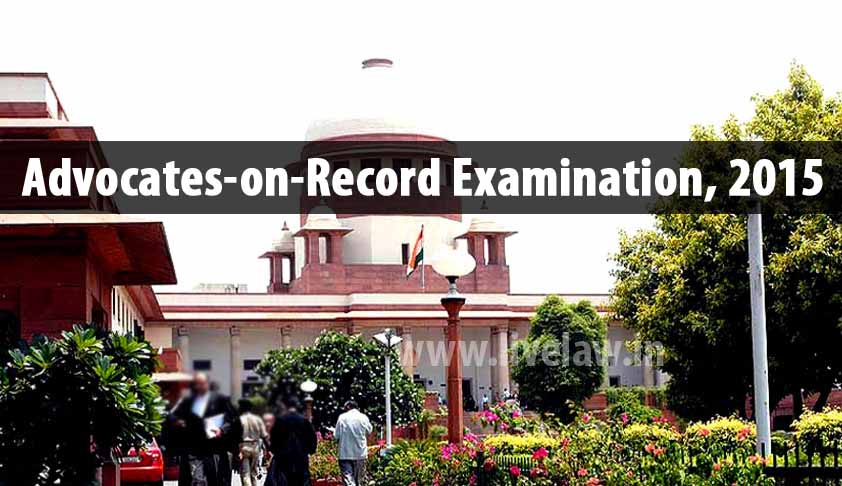Advocates-on-Record Examination, 2015 to be held on May 26 – 29th
Sandeep Suresh
2 April 2015 8:16 AM IST

Next Story
2 April 2015 8:16 AM IST
The Supreme Court of India’s Registry released an important Notification today regarding the Advocates-on-Record (AoR) Examination, 2015. According to the Notification, this year’s AoR Examination will be held in the Supreme Court premises in New Delhi on 26th, 27th, 28th and 29th of May, 2015.Interested candidates should send their applications, which must reach the Secretary, Board...
